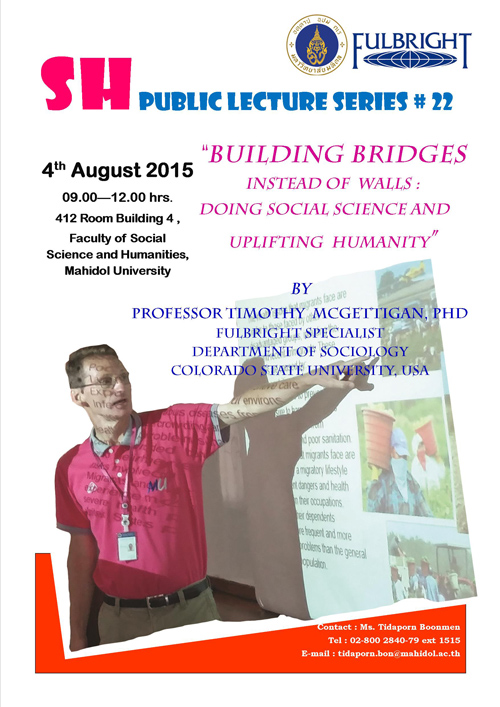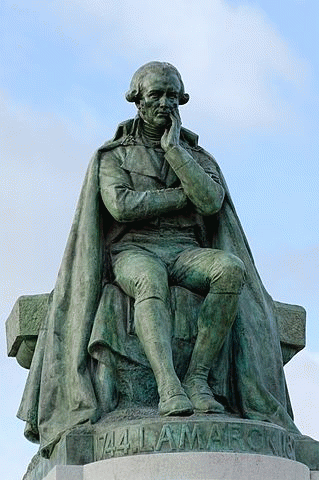Almost as an afterthought, Stephen Jay Gould (1987, p. 70) acknowledged the profound distinction between biological evolution and human cultural evolution.
Biologists believe that genetic change is primarily Darwinian--that is, it occurs via natural selection operating upon undirected variation. Human cultural evolution is Lamarckian--the useful discoveries of one generation are passed directly to offspring by writing, teaching and so forth.
In human cultural evolution...transmission and anastomosis are rampant. Five minutes with a wheel, a snowshoe, a bobbin or a bow and arrow may allow an artisan of one culture to capture a major achievement of another. Fruitful analogies may be drawn between biological and cultural evolution, but they remain analogies. The processes are different, even though human culture has a biological base. Cultural evolution needs laws of its own. This statement is neither a council of despair nor a dashing of hopes for intellectual coherence. It is merely an acknowledgment of the world's hierarchical structure and, I hope, an intellectual challenge in its own right (Gould, 1987, p. 70).
Thus, Gould asserts that Darwinian evolution is biological and operates at the level of genetics. Since all life is biological in origin, Gould concedes that Homo sapiens emerged as a result of a long-term Darwinian evolution process. However, following the emergence of human cognition and cultural development, Gould argues that evolution among humans has become Lamarckian rather than Darwinian. By this, Gould means that human cognition has enabled an entirely new type of adaptation via a process of "acquired characteristics." In other words, Homo sapiens has succeeded in "fast-tracking" the evolution and adaptation process by cognitively carrying out end-runs around Darwinian evolution. Although Gould blithely breezes over this profound evolutionary transformation, I believe it is evidence of an entirely new chapter in the history of evolution.
Importantly. other observers have also noted that humans have been liberated from the strict constraints of biological, or Darwinian evolution. For example, in Wired for Culture , Pagel (2012) argues that humans have been able to subvert the biological evolutionary process due to their unique capacity for cognition and cultural adaptation. Strangely, Pagel asserts that cultural adaptation is necessarily deterministic. For his part, Gould draws a very different conclusion about the indeterministic nature of cognitively-mediated human events. In short, Gould believes that cognitive innovation leaves open the possibility that the influences of agency add a significant element of "improbability" to the course of human events and, thus, if history were to be replayed, Gould believes that slight, individual-level modifications could lead to enormous alterations in the course of human history.
In his Foreword to Gould's (2003) Triumph and Tragedy in Mudville , David Halberstam states,
Steve Gould believed in what might be called the contingency of history theory--that is, history is not a simple unbroken, almost predictable line of progress with certain almost guaranteed givens and thus assured outcomes. Rather, it is filled with pitfalls and ambushes and there are land mines everywhere; occasionally it is almost whimsical in the course it chooses. If you rewind certain sections of history and try to replay them, he believed, things might come out very differently: the Confederacy, say (these are my examples not his), might triumph at Gettysburg, Rommel might defeat Montgomery in North Africa, and Mickey Owen might hold on to the third strike from Hugh Casey (Halberstam in Gould, 2003, p. 16).
To reiterate, the essential distinction between agents and non-agents is that the fate of non-agents is determined by their environments: cold kills heat-loving plants. On the other hand, agents are capable of modifying their environments in order to suit their own interests: transforming the parched Las Vegas desert into an oasis for carefree thrill-seekers.
References
Gould, Stephen Jay. An Urchin in the Storm: Essays About Books and Ideas . New York: W. W. Norton, 1987.
Gould, Stephen Jay. Triumph and Tragedy in Mudville: A Lifelong Passion for Baseball. New York: W.W. Norton, 2003.
Pagel, Mark. Wired for Culture: Origins of the Human Social Mind. New York: W. W. Norton, 2012.






